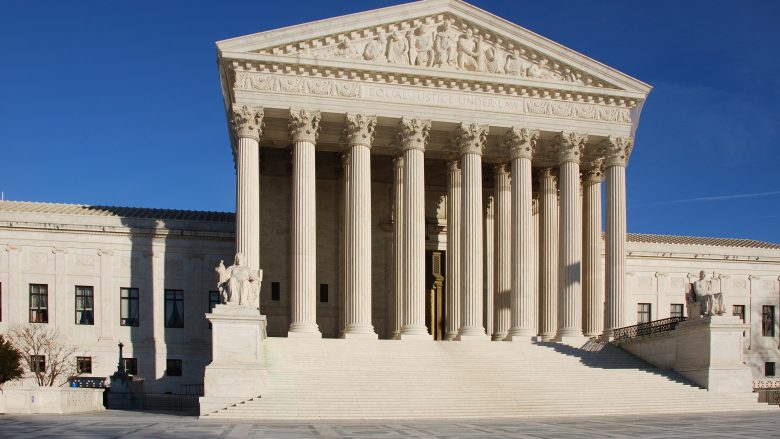Judges Can’t Rule After They Die, Supreme Court Says
By Matt McDonald | February 25, 2019, 18:03 EST

Once judges die, they lose the power to rule, the nation’s highest federal court has decided.
The U.S. Supreme Court has decided that a federal appeals court judge who died before a decision he voted on was issued can’t have his vote counted.
Stephen Reinhardt, one of the most liberal federal judges in the country, died at age 87 on March 28, 2018. Eleven days later the Ninth Circuit Court of Appeals, which is the most liberal federal appeals court in the country, issued a decision on a case setting new precedent on a 6-5 vote, counting Reinhardt’s vote and the opinion he wrote before his death.
The appeals court justified its action with a footnote: “Prior to his death, Judge Reinhardt fully participated in this case and authored this opinion. The majority opinion and all concurrences were final, and voting was completed by the en banc court prior to his death.”
The federal Supreme Court on Monday said no.
“Because Judge Reinhardt was no longer a judge at the time when the en banc decision in this case was filed, the Ninth Circuit erred in counting him as a member of the majority. That practice effectively allowed a deceased judge to exercise the judicial power of the United States after his death. But federal judges are appointed for life, not for eternity,” the U.S. Supreme Court said.
(“En banc” is a legal term usually meaning “full court” as opposed to a smaller panel of judges (such as a panel of three judges, in typical federal appeals court cases). In the Ninth Circuit, which has 29 judges, it means a larger panel of 11.)
The U.S. Supreme Court noted that a judge’s decision isn’t final until it is issued publicly.
“As for judicial practice, we are not aware of any rule or decision of the Ninth Circuit that renders judges’ votes and opinions immutable at some point in time prior to their public release. And it is generally understood that a judge may change his or her position up to the very moment when a decision is released,” the Supreme Court said in an unsigned opinion.
The case is called Jim Yovino, Fresno County Superintendent of Schools v. Aileen Rizo. The U.S. Supreme Court issued the decision Monday, February 25.
The case involves a female math consultant who discovered that the county public school system she worked for had hired male math consultants at a higher salary than she got, because of a formula that took into account her prior lower salary as a middle school and high school math teacher. She filed suit, claiming wage discrimination on the basis of sex. The school district argued that using prior wage is permissible under existing case law because it isn’t based on sex.
Reinhardt noted in his opinion that Congress endorsed pay equity for men and women in the Equal Pay Act of 1963.
“Salaries speak louder than words, however,” Reinhardt wrote in the Fresno County decision, which the Supreme Court vacated today. “Although the Act has prohibited sex-based wage discrimination for more than fifty years, the financial exploitation of working women embodied by the gender pay gap continues to be an embarrassing reality of our economy.”
Instead, the high court sent the case back to the appeals court for a new ruling.
It’s possible that Trump nominees will sway the new decision of the appeals court, whatever it is.
Since taking office, President Donald Trump has appointed two judges to the Ninth Circuit Court of Appeals who have taken office, including one since Reinhardt’s death. Two more have been voted on by the U.S. Senate Judiciary Committee but not voted on by the full Senate. Three others are pending before the U.S. Senate Judiciary Committee.
The Ninth Circuit is headquartered in San Francisco, California. It has jurisdiction over federal district courts in California, Arizona, Nevada, Oregon, Washington state, Idaho, Montana, Alaska, and Hawaii.
The Ninth Circuit tried a similar tactic in a tax case issued almost four months after Reinhardt died, called Altera Corporation & Subsidiaries v. Commissioner of Internal Revenue, which included a footnote that said: “Judge Reinhardt fully participated in this case and formally concurred in the majority opinion prior to his death.”
That ruling was issued July 24, 2018, 118 days after Reinhardt died. But the appeals court subsequently vacated the decision on its own, without the case reaching the U.S. Supreme Court.
Reinhardt, a Jimmy Carter appointee, during his time on the federal bench ruled unconstitutional “under God” in the Pledge of Allegiance, a state law banning partial-birth abortion, a state law making English the official language, a state constitutional amendment voted on by California voters that at the time made same-sex marriage illegal, and a state law banning assisted suicide. All those decisions were reversed or vacated by the U.S. Supreme Court.
Reinhardt acknowledged being a liberal. “I think I was born that way,” he once said, according to Courthouse News.
He also acknowledged being frequently overturned by the U.S. Supreme Court. “They can’t catch ‘em all,” he often said.









